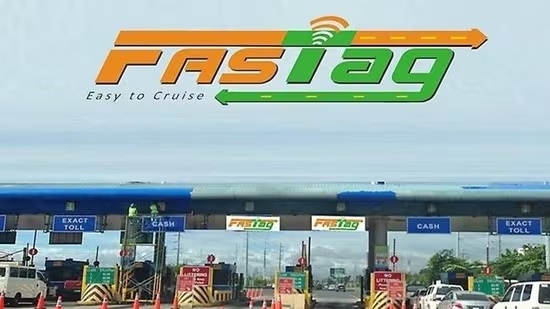Mah makes FASTag mandatory at all toll plazas from April 1
| Date :08-Jan-2025 |

MUMBAI :
THE Maharashtra Cabinet on Tuesday decided to make toll collection through FASTag mandatory from April 1 and announced revisions in the Rules of Business to streamline administrative processes.
The Cabinet chaired by Chief Minister Devendra Fadnavis approved the Public Works Department’s proposal that toll collection at toll plazas across the State will be done exclusively through FASTag from April 1.
It also approved amendments to the Public-Private Partnership Policy 2014 to facilitate this change. FASTag is India’s electronic toll collection chip for national highways. The move is expected to bring efficiency and transparency to toll collection and reduce vehicle congestion at toll plazas. It will save time and fuel for commuters, a Government statement said. It also stated that vehicles without FASTag or those entering the dedicated lanes without proper tags will have to pay double the toll fee. At present, tolls are being collected at 13 road projects under the public works department and nine projects managed by the Maharashtra State Road Development Corporation.
The decision will apply to these and all future toll projects in the State, the statement said.
In another decision, the Cabinet approved the revised Maharashtra Government Rules of Business to make administrative functioning smoother and more efficient. The revisions include provisions related to matters to be presented before the cabinet, cases requiring the approval of the Chief Minister or the Governor, and the procedures for meetings of the Cabinet and Council of Ministers.
The first such rules were framed in 1975, and this is the third major revision.
After the Governor’s approval, the revised rules will be published in the official gazette.
These changes are aimed at enhancing transparency, efficiency, and public-centric governance, ultimately benefiting the citizens of the State, the statement said. The revised rules contain 48 regulations, four schedules, and one annexure, divided into nine sections.
From paper to tab: Mah to introduce ‘e-cabinet’ system, put Govt decisions on portal: THE Maharashtra Government will soon implement an “e-cabinet” system which seeks to reduce use of paper and replace traditional documentation with smart tablets at cabinet meetings.
The electronic-driven initiative, presented by Chief Secretary Sujata Saunik after the cabinet meeting on Tuesday, aims to make Government functioning more transparent and environmentally sustainable, said an official statement. The system will make cabinet decisions accessible to citizens through a dedicated portal. The digital initiative is being adopted after CM Devendra Fadnavis emphasised on the use of technology to accelerate administrative processes and ensure timely communication of Cabinet decisions.
to citizens, said the statement.
Under the system, the use of paper in cabinet meetings will be cut down and smart tablets will replace traditional documentation. This information and communications technology-based solution will provide ministers with an easy-to-use dashboard to access relevant references, review action points, and monitor the implementation of decisions, it said. The fully digital system will streamline the process of presenting proposals online, discussing them during cabinet meetings, recording final decisions, and maintaining related documentation. It will also preserve meeting records and make it easier to retrieve references or past decisions, said the statement. Describing the e-cabinet as a green initiative, the Government noted the system would not only reduce paper consumption, but also save time for Cabinet members and officials involved in the process. It is expected to address several challenges faced in traditional cabinet meetings and improve overall governance, said the statement. The Chief Minister has highlighted this initiative as a crucial step towards good governance, aimed at addressing public issues more efficiently while ensuring environmental sustainability, it added.
It said that the schedules detail the names of administrative departments, cases to be presented before the cabinet, matters requiring the Chief Minister’s or Governor’s approval, and procedures for legislative proposals.
The annexure explains the working methods of the cabinet and the council of ministers.
As per the statement, a study group of departmental secretaries recommended these revisions based on a comparative study of the rules of the Government of India and other States.
Provisions have also been included to ensure orders are issued at a minimum of undersecretary level and to streamline the process for presenting legislative bills, it said.
These changes are expected to simplify and expedite the decision-making process, leading to more effective governance in the State, the statement said.
